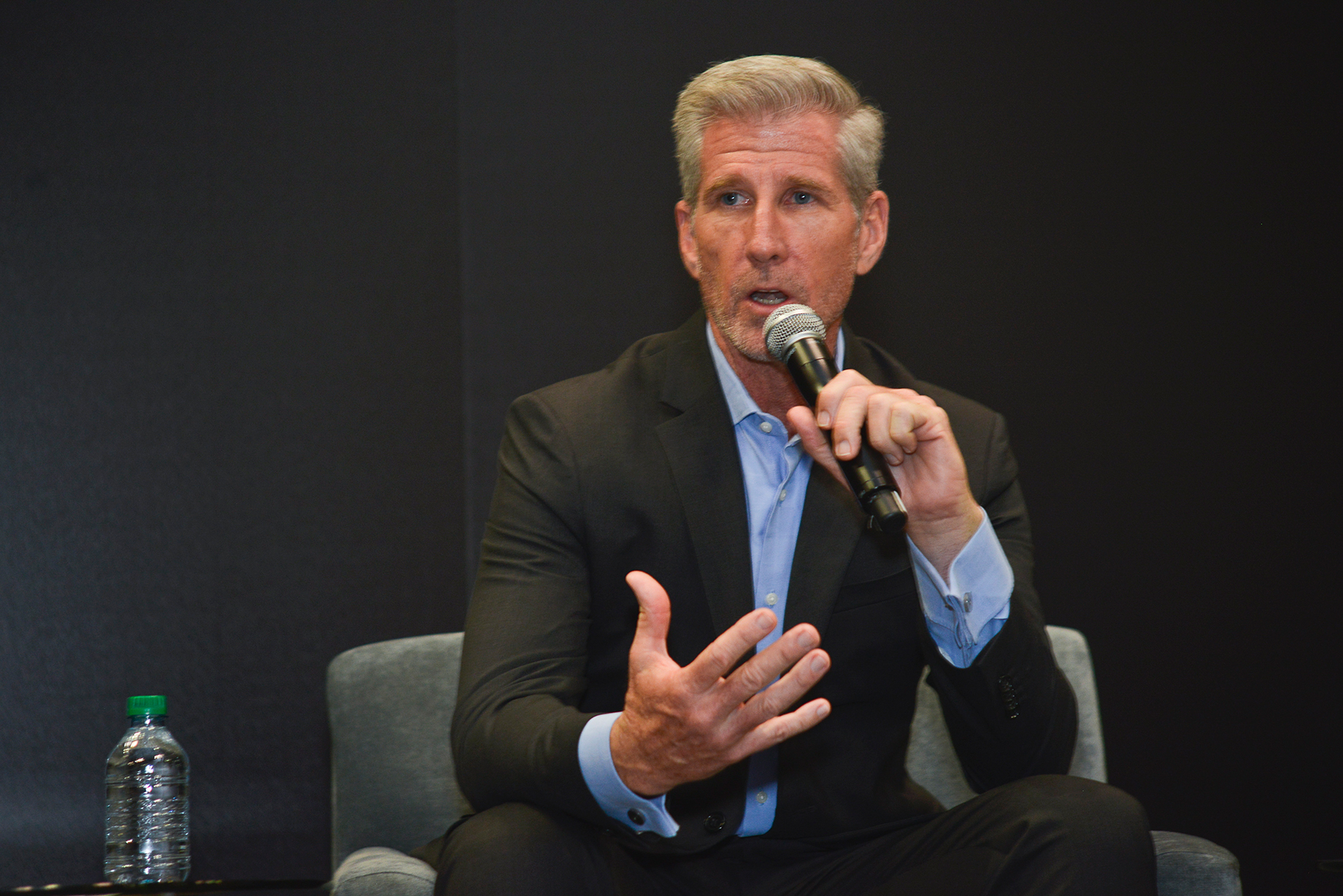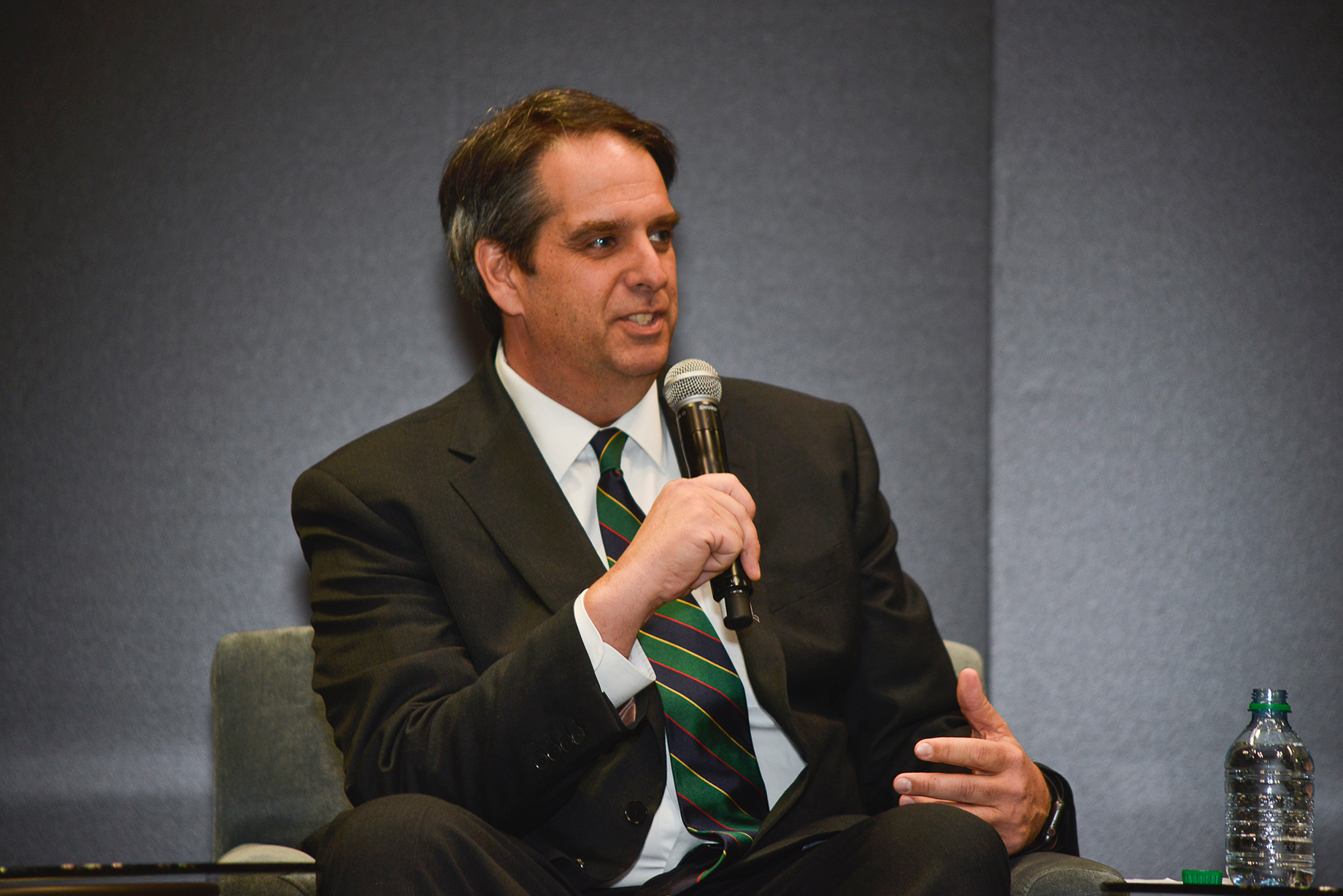As investor, customer and government expectations for commercial-property sustainability increase, it is more important than ever that tenants and landlords collaborate to achieve sustainability targets, executives said at ICSC New York Deal Making on Wednesday.

Jeff Bedell at ICSC New York Deal Making
Among the markets expected to enact caps on greenhouse gas emissions for commercial properties in the coming years are Boston, New York City, Seattle, Southern California and Washington, D.C., said Chris Brown, director of private-sector engagement at the Institute for Market Transformation, based in Washington, D.C. “Investor pressure and city regulations are ratcheting up and shifting.” He cited a loan Italian luxury retailer Prada recently secured that included triggers, based on the number of that company’s LEED-rated stores, that would increase interest rates.

Chris Brown
Green leases that address such contentious issues as common-area lighting, integrated pest management, solar-energy use and transference of energy-usage data are essential, said Brown. He pointed to the Green Lease Leaders program, which encourages property owners to include more energy-management and sustainability levers in their leases. Macerich, for its part, has been confronting the issue when presenting store buildout specs, which happens before the lease, said vice president of sustainability Jeff Bedell. “We get minimum pushback at that level.”
Communication is often the most difficult part of any successful sustainability strategy, Bedell noted. “You will need two lines of communications: one with the tenant’s corporate headquarters and one on-site. One of the lessons we’ve learned is that the corporate level needs to push down the requirements. You can’t just do it at the property level if you’re not talking to the corporate level.”

Jessica Tomaz
Landlords and tenants have been more successful at collaborating on energy management than on waste management and recycling, said Jessica Tomaz, sustainability manager at New York City–based Recycle Track Systems. One of the solutions is signage, she suggested. “Signage is the most important thing when it comes to recycling,” said Tomaz, who advises clients on recycling practices, “because you need to communicate what you’re doing with the waste.”
Tomaz recommends that landlords produce a regular newsletter for tenants, explaining the results of the waste-management program. “Give numbers or equivalencies to make the information more relatable,” she said. “For example: ‘This many trees saved.’” Tomaz also encourages online portals on which tenants can check their performances, as well as regular tenant recycling meetings.
By Brannon Boswell
Executive Editor, Commerce + Communities Today

